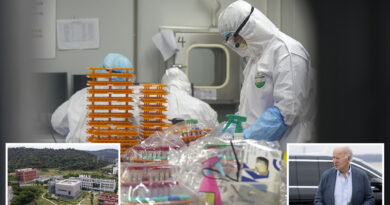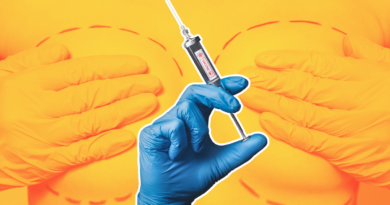Omnibus Collisions: Coronavirus Policing and Overreach in Victoria

In her September 17 speech to parliament, the Attorney General of the Australian state of Victoria, Jill Hennessy, explained various provisions of the COVID-19 Omnibus (Emergency Measures) and Other Acts Amendment Bill. Of most interest was the proposal that would dramatically inflate the scope of public health power in ostensibly preventing a spread of COVID-19. “The broader class of persons who may be appointed as authorised officers may include public sector employees from Victoria and other jurisdictions. For example, health services staff, WorkSafe officers such as Inspectors, Victoria Police members and Protective Service Officers.”
The formulation seemed an odd one: health services staff as designated officers to halt transmission perhaps, but unqualified members of the Victoria Police, along with Protective Service Officers? The Secretary of the Department of Health and Human Services was the proposed appointer; the appointees (“authorised officers”) would be anybody deemed to possess appropriate skills, attributes or experience. Such elevated, muscularly vested officers would have the power to detain anyone who has tested positive for COVID-19, or anyone who had been in close contact with a positive case, for a period “reasonably necessary to eliminate a serious risk to public health,” provided it was “reasonably believed” they would fail to comply with a direction of self-quarantine.
Hennessy evaded the severe implications of such a broadly worded provision, arguing for convenience and efficiency, the two traditional hallmarks of the authoritarian mentality. The appointment power would focus upon “individuals with particular attributes, such as connection to particular communities”. “Contact tracing” would be able to take place in “a culturally safe manner.” A for any oversight limitations, these appointments would be subject to a “specific instrument” outlining specific authority and limitations authorised by the Secretary and Chief Health Officer.
This was something that did not escape the notice of some members of the Victorian Parliament. Greens MP Tim Read noted how the Omnibus Bill, in that draft form, gave police, protective services officers and private security guards powers to unilaterally determine who constituted a high risk with little regard to medical expertise. “Currently only public servants with the relevant skills and experience can make that decision”. Enforcing directions was a separate function of law enforcement. “So the bill would allow police to both make health directions on individuals and then to enforce them.”
The Omnibus Bill also saw various legal advocates spring into action. Michael Borsky QC went for understatement in claimingthat detaining someone for hypothetical future conduct was a “very unusual legal construct”. The provision was “open to abuse”. Nor did impress the legal heads at the Victorian Bar, where there was much head shaking. The proposed criteria for appointing such officers was deemed too “broad and generic”. Their lack of precision “potentially opened the door for those who are not trained as health professionals to be appointed ‘authorised officers’.”
Granting such individuals unilateral powers of detention against individuals not abiding by a public health direction was another point of concern. An officer’s “reasonable belief” was a “standard of validation” vast and subjective. The Victorian Bar also suggested some measure of accountability: that decisions made by such authorised officers be “reviewed by the Chief Health Officer (or senior delegate) within a short, stipulated period (preferably not longer than 24 hours).”
The talents of Victorian policing have already been found wanting during one of the most extreme lockdown measures in the developed world. Reem Mussa, humanitarian advisor on forced migration to Médicins Sans Frontières, remembered the terror caused by the appearance of five hundred police “on housing estates [in Melbourne], trapping residents inside with no coherent health strategy or plans to keep them safe, fed or with access to medication and essentials.” 23 confirmed cases of COVID-19 had been found on the estates in July. Panic coursed through the various administrative arms of government.
In September, a very public display of policing mismanagement took place with the arrest of Ballarat resident Zoe Buhler, a pregnant mother apprehended in front of her children and husband in their home for a Facebook post inciting protest against the lockdown rules. No police officer thought it necessary to explain the offence of incitement, nor accept her offer to remove the offending post. It was such conduct that prompted Greg Barns of the Australian Lawyers Alliance to argue for limits on police powers when linked to pandemic controls.
The Police Accountability Project, based at the Flemington & Kensington Community Legal Centre in Melbourne, has also been alarmed by the aggressive, untutored policing formula pursued in the state. “The policing we have seen in Victoria to date and the scale of the policing we have seen [on July 4] and today in Flemington & North Melbourne, has caused and continues to do harm.”
Over the course of the lockdown, the PAP project has noted ten concerns about how harsh Stage 4 restrictions have been enforced. A few are worth noting. Police, for instance, were ill trained to make complex assessments about exemptions requiring health expertise. “Police ignored genuine health based exemptions and continually resorted to lock-down responses because it more closely aligned with their training.” They had failed to comprehend the public health impacts of their work, and that most pressing of points that policing “undermines public health responses.” The policing of curfews had been “applied in a discriminatory, abusive and harmful manner.” With such a stunning resume of faults and blunders, it is a wonder how the drafters in the Attorney-General’s department took leave of their senses.
On October 8, the Victorian government quietly trimmed parts of the proposed bill dealing with detention. Finding themselves in retreat, a flutter of qualifications were made. “We have always said we would negotiate in good faith,” claimed a less than chastened Hennessy. Giving little away, the Attorney-General claims to have made such amendments that will continue “to deliver the temporary, necessary changes we need to respond to the challenges the pandemic presents”.
According to Guardian Australia, the proposed table of changes will still preserve the power to appoint police and protective services officers as authorised officers, but with fewer powers. They will still be able to exercise considerable discretion in, for instance, searching property without a warrant if “necessary for the purpose of investigation, eliminating or reducing the risk to public health”. The daft dangers of making police and security personnel pseudo-health officers remain.
*
Note to readers: please click the share buttons above or below. Forward this article to your email lists. Crosspost on your blog site, internet forums. etc.
Dr. Binoy Kampmark was a Commonwealth Scholar at Selwyn College, Cambridge. He lectures at RMIT University, Melbourne. He is a frequent contributor to Global Research and Asia-Pacific Research. Email: [email protected]
Featured image: A woman walks her dogs in Fitzroy Gardens park as police and defence force officers patrol in Melbourne, Victoria, Australia [David Crosling/EPA]
*** This article has been archived for your research. The original version from Global Research can be found here ***


